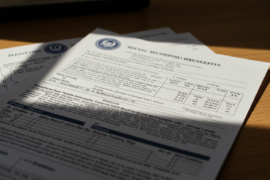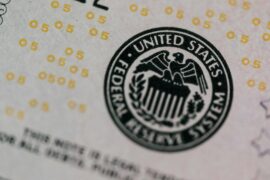This article may contain references to products or services from one or more of our advertisers or partners. We may receive compensation when you click on links to those products or services. Nonetheless, our opinions are our own.
You may have noticed a recent rate shift if you keep a close eye on the changes in the mortgage market. The latest tariff news could impact your plans if you’ve been considering purchasing a new home or refinancing your existing loan. We’ll examine the recent rise in weekly mortgage rates directly linked to a significant tariff declaration. By exploring the factors at play, you’ll understand how these economic changes might affect your financial decisions. Whether you’re a seasoned investor or a first-time homebuyer, being informed is essential to navigating these fluctuations in the housing market.
- Understanding How Recent Tariff Changes Affect Mortgage Rates
- The Connection Between Tariffs and Your Home Financing Costs
- Strategies to Secure Better Mortgage Rates Amid Rising Trends
- Navigating Your Mortgage Options in an Uncertain Economic Climate
- Smart Moves to Take if You’re Considering a Home Purchase Now
- Finding Financial Stability Despite Fluctuating Mortgage Rates
- Frequently Asked Questions
- Recommended Reads
Understanding How Recent Tariff Changes Affect Mortgage Rates
Recently, the announcement of new tariffs has had a ripple effect across various sectors of the economy, and mortgage rates are no exception. As tariffs increase the cost of imported goods, inflationary pressures can mount, causing lenders to reevaluate their risks. This reevaluation often results in higher mortgage rates as lenders adjust to mitigate potential losses from rising costs. If you are considering buying a home or refinancing your existing mortgage, it’s crucial to grasp how these shifts in economic policy can directly impact your financial decisions.
Here are some key points to consider regarding the interplay between tariffs and mortgage rates:
-
Inflation Influence: Increased tariffs can lead to higher prices for consumer goods, contributing to overall inflation, which typically pushes mortgage rates upward.
-
Lender Risk Assessment: As costs rise, lenders may perceive more risk in issuing loans, leading them to charge higher rates to compensate for this uncertainty.
-
Market Reactions: Financial markets often react swiftly to tariff announcements, affecting bond markets—specifically the yields on 10-year Treasury notes, which directly correlate with mortgage rates.
To illustrate the potential impact of tariff changes on your mortgage, here’s a simple comparison of projected rates:
| Tariff Scenario | Expected Mortgage Rate (%) |
|---|---|
| No Tariff Changes | 3.5 |
| Moderate Tariff Increases | 3.8 |
| Significant Tariff Increases | 4.2 |
As you navigate the home buying or refinancing landscape, keep these dynamics in mind. Staying informed about how economic policies like tariffs can shape financial markets enables you to make better decisions tailored to your financial future.
The Connection Between Tariffs and Your Home Financing Costs
As you keep an eye on the latest mortgage rates, it’s also essential to understand the broader financial landscape that influences these numbers. Recently announced tariffs can significantly impact your home financing costs. When tariffs are introduced, they can increase prices on imported goods, particularly in the construction sector. This means that materials like steel and lumber may become more expensive, which in turn can drive up the cost of home construction and renovations.
This ripple effect doesn’t just stop at new builds; it extends to existing homes and ultimately affects mortgage rates. Here’s what you might notice:
-
Increased Home Prices: Higher construction costs can lead to higher home prices, affecting your ability to find an affordable mortgage.
-
Rising Interest Rates: As lenders foresee a rise in inflation driven by tariffs, they may increase mortgage rates to maintain their profit margins.
-
Reduced Loan Access: If rates rise significantly, you could face stricter lending criteria, making it harder to secure a loan.
To visualize this impact further, take a look at the table below that outlines how different rate changes can affect your monthly payment on a 30-year fixed mortgage:
| Interest Rate | Monthly Payment (for $300,000) |
|---|---|
| 3.5% | $1,347 |
| 4.0% | $1,432 |
| 4.5% | $1,520 |
| 5.0% | $1,610 |
Understanding these connections is crucial for you as a homeowner or potential buyer. Awareness of how trade policies and tariffs influence your mortgage landscape empowers you to make informed decisions. Keep this type of economic backdrop in mind as you navigate your home financing options.
Strategies to Secure Better Mortgage Rates Amid Rising Trends
As mortgage rates continue to climb, exploring effective strategies that might help you secure a favorable rate despite rising trends is vital. Here are some practical steps you can take:
-
Improve Your Credit Score: Small tweaks in your credit habits can significantly boost your score. Pay down existing debt and ensure your payments are on time to enhance your creditworthiness.
-
Consider a Larger Down Payment: The more you put down, the less risk lenders perceive, which might translate to more favorable rates. Aim for at least 20% if possible.
-
Shop Around: Don’t settle for the first offer. Different lenders have varying rates, so take the time to get quotes from multiple institutions.
-
Lock In Your Rate: If you find a right rate, consider locking it in. This can shield you from ongoing rate increases during your loan processing time.
Additionally, understanding current market trends can offer insights that benefit your mortgage application. Below is a simple table illustrating key factors influencing mortgage rates:
| Factor | Impact on Rates |
|---|---|
| Economic Growth | Higher growth tends to lead to increased rates |
| Inflation | Rising inflation typically pushes rates upward |
| Federal Reserve Policy | Rate adjustments can directly influence mortgage rates |
By staying educated and proactive about your financial decisions, you can confidently navigate these increasing rates and find a mortgage that meets your needs.
As you navigate the unpredictable waters of today’s mortgage landscape, particularly following recent tariff announcements, it’s essential to stay informed and consider your options carefully. Mortgage rates can fluctuate rapidly in response to economic changes, so you need a proactive approach to securing the best deal. Here are some key points to keep in mind:
-
Shop Around: Don’t settle for the first rate you encounter. Taking the time to compare offers from different lenders can save you a substantial amount over the life of your mortgage.
-
Consider Fixed vs. Adjustable Rates: In an uncertain environment, it is crucial to weigh the stability of a fixed-rate mortgage against the potential lower initial payments of an adjustable-rate mortgage. Consider your financial goals and how long you plan to stay in your home.
-
Understand Your Credit Profile: Your credit score plays a significant role in the mortgage rates you’re offered. Check your credit report and rectify any inaccuracies before applying for a loan.
-
Look for Assistance Programs: Various local and national programs are designed to assist first-time homebuyers or those looking to refinance. These can provide not only better rates but also added support throughout the process.
To give you a clearer picture, here’s a quick comparison of fixed- and adjustable-rate mortgages:
| Mortgage Type | Pros | Cons |
|---|---|---|
| Fixed-Rate | Predictable monthly payments; protection against rate increases | Higher initial rates; less flexibility if rates drop |
| Adjustable-Rate | Lower initial rates; potential for lower payments if rates remain stable | Payments can increase over time; less predictability |
By evaluating your needs, understanding the pros and cons of each mortgage type, and staying informed about the evolving economic climate, you can make a decision that best aligns with your financial situation and long-term goals.
Smart Moves to Take if You’re Considering a Home Purchase Now
If you’re considering buying a home in the current climate, adjusting your strategy to navigate the rising mortgage rates effectively is essential. Start by evaluating your budget carefully. With fluctuating rates, consider how much you can afford without overstretching your finances. Setting a clear budget will allow you to stay ahead of the game, making it easier to adjust offers based on changing market conditions.
Next, it’s wise to get pre-approved for a mortgage. This gives you a better understanding of what you can afford and positions you as a serious buyer in a competitive market. Here are a few key points to remember:
-
Gather your financial documents, including tax returns and pay stubs.
-
Shop around for the best mortgage rates and terms.
-
Factor in additional costs such as property taxes, insurance, and maintenance.
Consider enlisting the help of a real estate agent who can provide insights into the market trends specific to your desired area. With their expertise, you’ll be better equipped to make informed decisions as you embark on this critically important journey.
Finding Financial Stability Despite Fluctuating Mortgage Rates
In today’s ever-changing financial landscape, adopting a proactive approach to managing your mortgage is essential, especially when rates fluctuate due to external factors like tariff announcements. Understanding how to navigate these changes can help you maintain your financial stability. Here are some effective strategies to consider:
-
Refinancing Options: Keep an eye on refinancing opportunities. If mortgage rates drop again, refinancing your loan might save you significant interest over time.
-
Fixed vs. Variable Rates: Evaluate whether a fixed-rate mortgage suits your situation. While variable rates might seem appealing initially, the unpredictability can lead to financial strain.
-
Build an Emergency Fund: Having a financial cushion can allow you to weather temporary increases in mortgage payments without feeling overwhelmed.
-
Budget Adjustments: Regularly review and adjust your budget to accommodate potential changes in your mortgage payments, ensuring you stay ahead of any financial challenges.
To provide you with a clearer picture of how these fluctuations can impact your monthly payments, consider this simple table illustrating potential changes in a fixed-rate mortgage of $250,000 over a 30-year term:
| Mortgage Rate (%) | Monthly Payment ($) | Total Interest Paid ($) |
|---|---|---|
| 3.00 | 1,054.01 | 126,500 |
| 4.00 | 1,193.54 | 178,500 |
| 5.00 | 1,342.05 | 229,500 |
By implementing these strategies and staying informed about mortgage trends, you can better position yourself for long-term financial health despite the ups and downs of market conditions.
Frequently Asked Questions
What caused the recent rise in mortgage rates?
The recent rise in mortgage rates can be attributed to the announcement of new tariffs. Investors often react to such news by adjusting their expectations regarding economic growth and inflation, directly influencing interest rates.
How do tariffs impact mortgage rates?
Tariffs can increase the costs of goods and materials, which may contribute to inflation. As inflation rises, lenders typically increase mortgage rates to compensate for the decreased purchasing power of future payments, leading to higher borrowing costs for homebuyers.
What should homebuyers know about rising mortgage rates?
Homebuyers should know that rising mortgage rates can significantly affect their monthly payments and affordability. To mitigate potential impacts, it’s essential to consider locking in rates or exploring different financing options.
Will the rise in mortgage rates affect the housing market?
Higher mortgage rates can slow down the housing market as potential buyers may be priced out, leading to decreased demand. This, in turn, could impact home prices and market dynamics, making it crucial for buyers and sellers to stay informed about market trends.
What can individuals do to prepare for fluctuating mortgage rates?
To prepare for fluctuating mortgage rates, individuals should improve their credit scores, explore different loan products, and consult mortgage professionals for guidance. Additionally, staying updated on economic news can help make informed decisions on when to buy or refinance.

Reviewed and edited by Albert Fang.
See a typo or want to suggest an edit/revision to the content? Use the comment form below for feedback.
At FangWallet, we value editorial integrity and open collaboration in curating quality content for readers to enjoy. Much appreciated for the assist.
Did you like our article and find it insightful? We encourage sharing the article link with family and friends to benefit as well - better yet, sharing on social media. Thank you for the support! 🍉
Article Title: Weekly Mortgage Rates Rise on Tariff Announcement
https://fangwallet.com/2025/04/15/weekly-mortgage-rates-rise-on-tariff-announcement/The FangWallet Promise
FangWallet is an editorially independent resource - founded on breaking down challenging financial concepts for anyone to understand since 2014. While we adhere to editorial integrity, note that this post may contain references to products from our partners.
The FangWallet promise is always to have your best interest in mind and be transparent and honest about the financial picture.
Become an Insider
Editorial Disclaimer: The editorial content on this page is not provided by any of the companies mentioned. The opinions expressed here are the author's alone.
The content of this website is for informational purposes only and does not represent investment advice, or an offer or solicitation to buy or sell any security, investment, or product. Investors are encouraged to do their own due diligence, and, if necessary, consult professional advising before making any investment decisions. Investing involves a high degree of risk, and financial losses may occur including the potential loss of principal.
Source Citation References:
+ Inspo
Investopedia. (n.d.). Investopedia. https://www.investopedia.com/
Wikipedia, the free encyclopedia. (n.d.). https://www.wikipedia.org/
Fang, A. (n.d.). FangWallet — Personal Finance Blog on Passive Income Ideas. FangWallet. https://fangwallet.com/
Google Scholar. (n.d.). Google Scholar. https://scholar.google.com/
There are no additional citations or references to note for this article at this time.











































